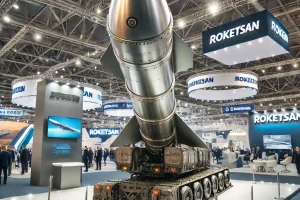As Donald Trump re-enters the White House, discussions emerge on how this might reshape U.S.-Turkey relations.
Trump’s approach to the Middle East, along with his strategic cabinet picks, has sparked mixed expectations about how Turkey might fare in this new term. His choice of “hawkish” officials, likely aimed at appeasing the conservative Republican base, signals a potentially tougher foreign policy stance, stirring apprehensions in Turkey about future relations.
U.S. Middle East Policy and Anti-War Messaging
During his initial term, Trump often emphasized a desire to end “endless wars” and promised a more peaceful approach in the Middle East. However, his post-election cabinet reveals indicate a possible shift towards a more assertive stance in the region. Figures with strong foreign policy opinions and prior critical views on Turkey, such as Senator Marco Rubio, have reportedly been considered for key roles. Trump’s son, Donald Trump Jr., added to this by posting on social media about keeping “pro-war” figures out of the administration—a move that raises questions about how the administration will ultimately shape Middle East policy.
For Turkey, Trump’s plan to potentially reduce U.S. military presence in Syria remains a critical topic. His previously stated goal of ending the U.S. presence in Syria is of particular interest, given that it could reshape power dynamics with Syria and Kurdish forces, which directly impacts Turkey’s security concerns.
Cabinet Choices: A Message to the Republican Base?
Many analysts suggest Trump’s cabinet selections are designed to send a message to his Republican base by incorporating figures who represent a hardline stance on issues such as defense and foreign affairs. Despite assembling a team with contrasting views, Trump’s first term demonstrated his willingness to act independently, often disregarding cabinet advisors. This independence was evident in his 2019 decision to withdraw U.S. troops from northern Syria, which he made without extensive consultation, prompting Secretary of Defense James Mattis and National Security Advisor John Bolton to resign in protest.
If Trump maintains his decision-making style, he could again sideline the input of hawkish advisors when it comes to Turkish-American relations and the broader Middle East policy.
Heightened Trade Tensions Expected with China
On the economic front, Trump has hinted that his administration will focus on implementing higher tariffs on Chinese goods, including a specific focus on electric vehicles, as a means of countering China’s economic influence. Trump’s previous rhetoric indicated that he views an economic rivalry with China as central to securing America’s economic future. Should this approach continue, heightened trade tensions could have implications for both U.S.-China and global markets, especially in industries where China holds significant production capacity.
Domestic Priorities: Economic Recovery at the Forefront
Returning to office during a period of economic uncertainty, Trump has signaled that he will prioritize addressing inflation and housing prices, two issues that have particularly impacted middle- and lower-income Americans. Many voters felt the effects of high inflation and inaccessible housing prices during the Biden administration, exacerbated by the economic impacts of the COVID-19 pandemic. Trump’s primary domestic goal is likely to focus on economic stability, aiming to relieve pressures on American households and address rising costs of living, which could play a critical role in his administration’s favor.
Trump and Biden Meeting: Will Tradition Hold?
A White House meeting between Trump and Biden is expected on November 13, prompting questions about how smoothly the presidential transition process will go. Historically, transitions between U.S. presidents are marked by civility and cooperation, but given Trump’s unique approach, this meeting could break from that tradition. Trump’s resistance to concede in past elections and the events surrounding the January 6th Capitol riot have fueled uncertainty regarding the tone and nature of the meeting.
In this new term, Trump’s foreign and domestic policies will likely impact U.S.-Turkey relations directly. Both his commitment to “ending wars” in the Middle East and his focus on internal economic reforms could shape future dynamics with Turkey and other countries in the region.






